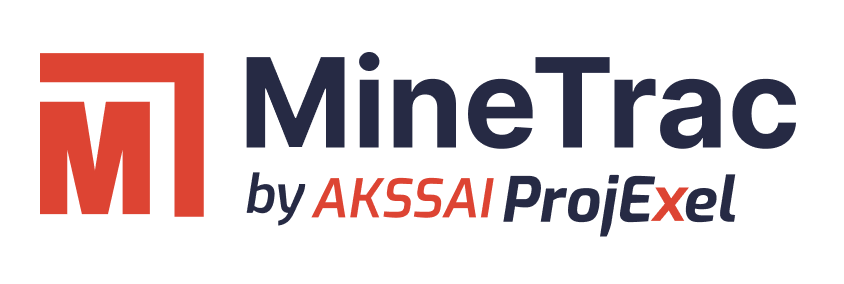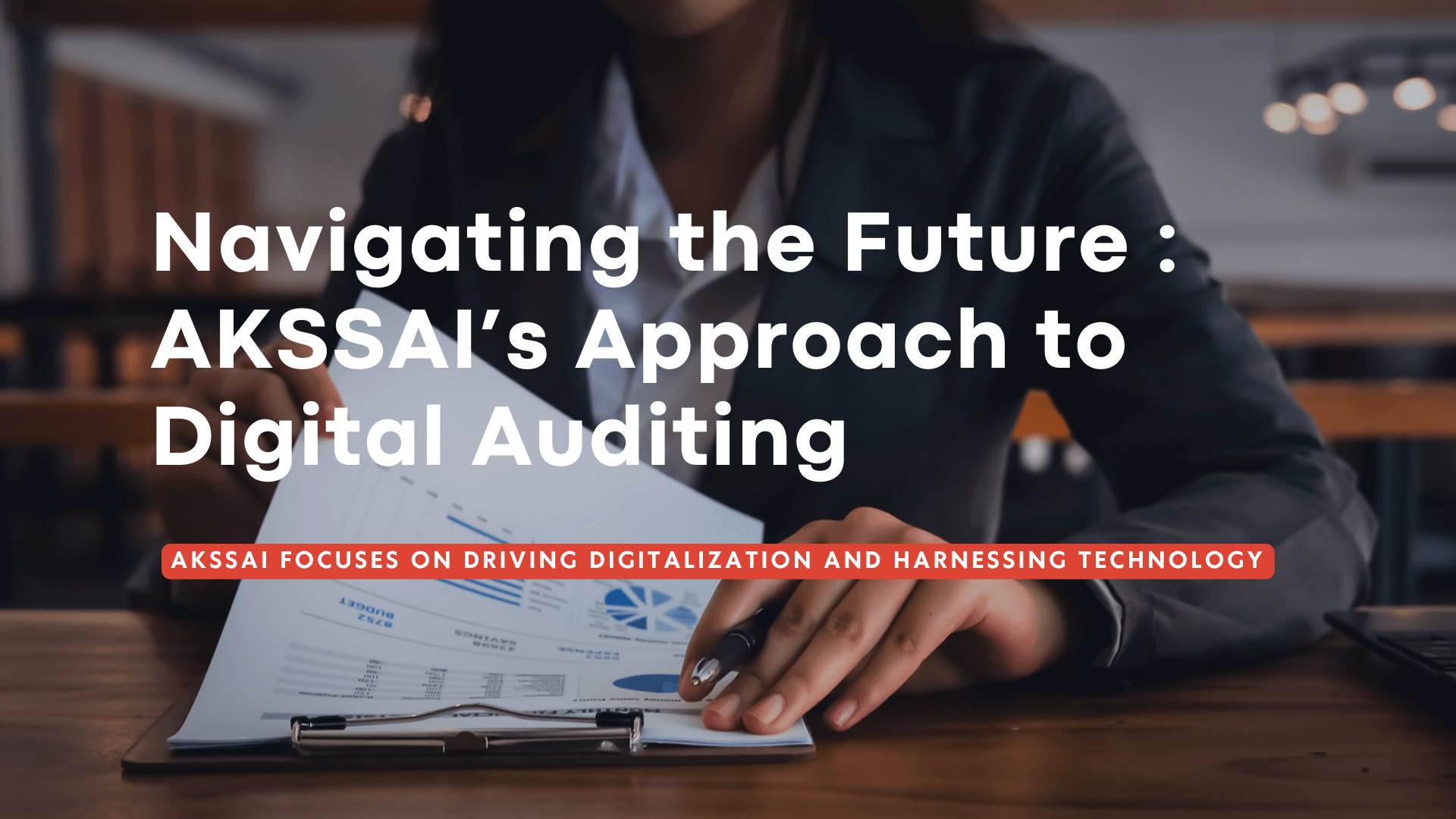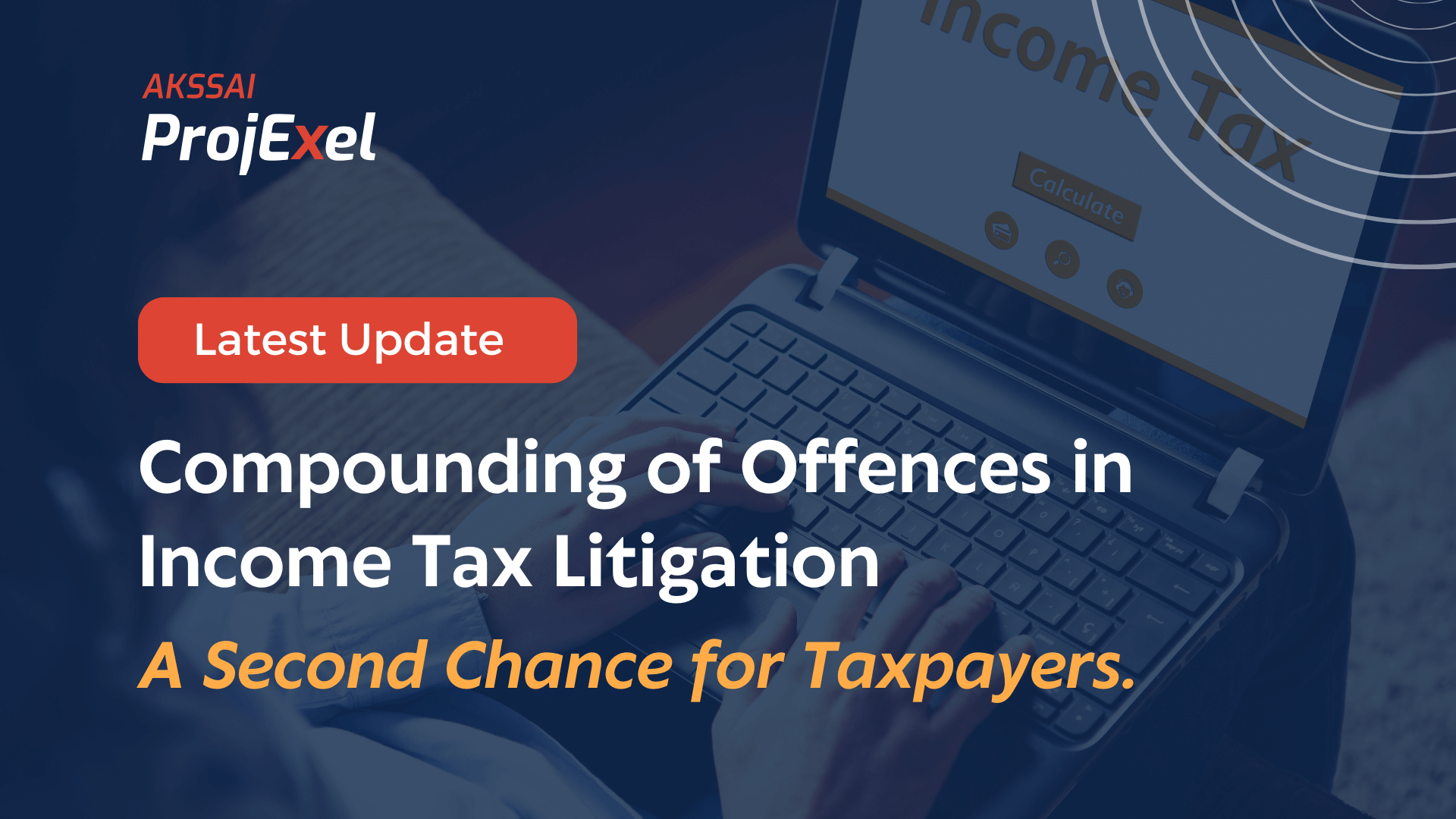Everywhere you look in the digital age, technological innovation is a driving force – and auditing is no exception.
“AKSSAI focuses on driving digitization and harnessing technology”.
At AKSSAI, we have customized our service offerings to foster innovation and provide impactful solutions.
In the digital age, our advisory services in auditing have expanded beyond traditional financial audits to encompass a broader range of strategic and technological considerations.
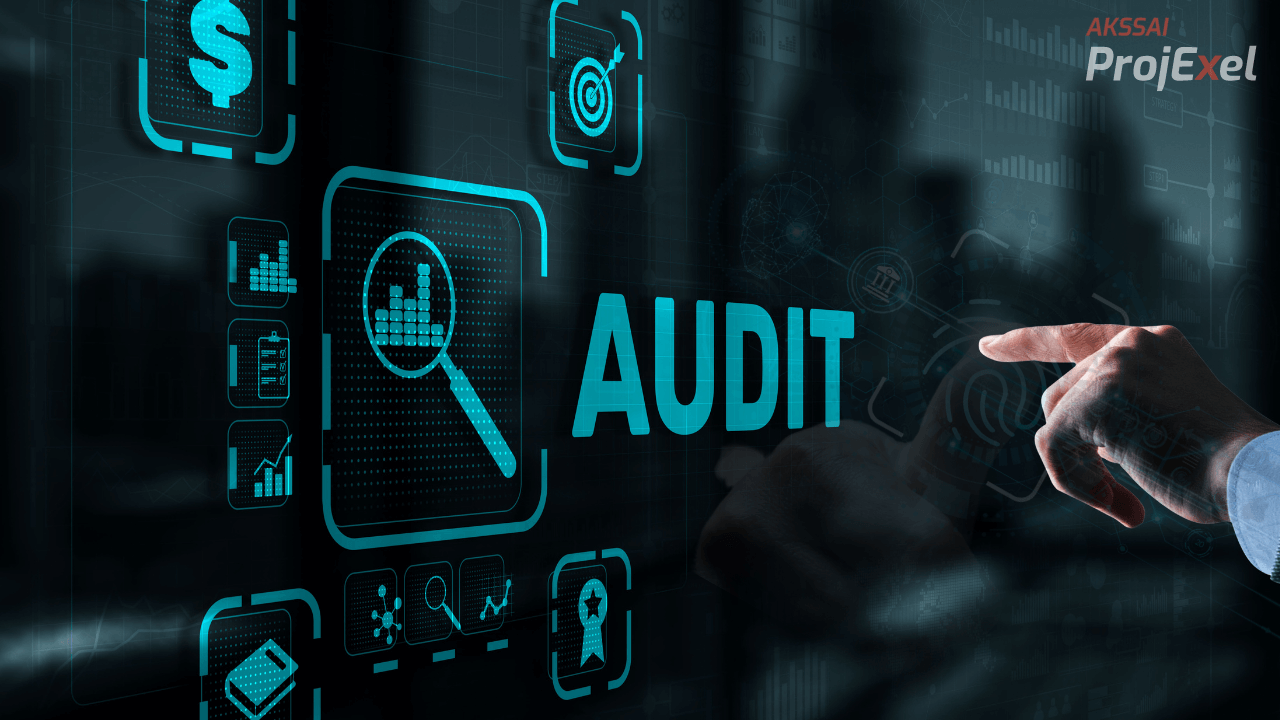
In AKSSAI, our Advisory services aim to assist organizations in navigating the complexities of the digital landscape, leveraging technology for efficiency and effectiveness, and managing risks associated with the adoption of digital tools.
Auditing in the digital age has evolved significantly due to advancements in technology, changes in business processes, and the increasing reliance on digital systems.
Key Aspects of auditing in the digital age:
1. Data Analytics:
Auditors leverage advanced data analytics tools to examine large volumes of data quickly and identify patterns, anomalies, and potential risks.
Continuous auditing allows for real-time monitoring of financial transactions and processes, reducing the chances of fraud and errors going undetected.
2. Remote Auditing:
The digital age has facilitated remote auditing, allowing auditors to access systems and data from anywhere. This has become especially important during global events such as the COVID-19 pandemic.
Virtual collaboration tools enable auditors to communicate with clients, share documents securely, and conduct interviews remotely.
3. Regulatory Compliance:
Auditors must stay informed about evolving regulations related to digital transactions, data privacy, and cybersecurity. Compliance audits ensure that organizations adhere to relevant laws and standards.
4. Cloud Computing Audits:

As more businesses move their operations to the cloud, auditors assess the security, availability, and reliability of cloud services. They also evaluate the management of cloud-based assets and data.
5. Digital Documentation and Electronic Records:
Auditors now deal with electronic records and digital documentation. They assess the reliability and authenticity of electronic evidence, ensuring that it meets the same standards as traditional paper documentation.
6. Integrated Auditing Software:
Specialized auditing software streamlines the audit process by providing tools for documentation, workflow management, and collaboration among audit team members.
7. Ethical Considerations:
Auditors in the digital age must consider ethical implications, such as the responsible use of data, privacy concerns, and maintaining the confidentiality of sensitive information.
Benefits of Auditing in the Digital Age:
1. Increased Efficiency:
Digital tools and automation streamline audit processes, reducing the time and effort required for manual tasks.
Data analytics enable auditors to analyze large datasets quickly, identifying patterns and anomalies efficiently.
2. Real-Time Monitoring:
Continuous auditing and monitoring in the digital age allow auditors to assess financial transactions and business processes in real-time, enhancing the ability to detect issues promptly.
3. Enhanced Accuracy:
Automation and advanced analytics contribute to greater accuracy in identifying errors, fraud, and inconsistencies in financial data.
Digital tools reduce the likelihood of human errors associated with manual data entry and calculations.
4. Improved Risk Assessment:
Advanced data analytics and AI tools assist auditors in better understanding and assessing risks associated with financial transactions and business operations.
Predictive modeling helps identify potential risks before they escalate.
5. Global Accessibility:
Remote auditing capabilities enable auditors to access systems and conduct audits from anywhere in the world.
Cloud-based collaboration tools facilitate seamless communication and document sharing among audit teams and clients.
Here are some prevalent trends in auditing in the digital age:
1. Focus on ESG (Environmental, Social, and Governance) Auditing:

Increasing emphasis on ESG auditing to assess and report on an organization’s environmental, social, and governance practices.
Stakeholders demand greater transparency in non-financial reporting.
2. Digital Documentation and Electronic Records:
Continued shift towards digital documentation and electronic records, requiring auditors to assess the reliability and authenticity of electronic evidence.
3. Rise of Robotic Process Automation (RPA):
Integration of RPA to automate repetitive tasks, reduce errors, and enhance the efficiency of audit procedures.
RPA is applied in areas such as data extraction, validation, and reconciliation.
4. Regulatory Compliance and Changes:
Ongoing efforts to keep up with evolving regulations related to digital transactions, data privacy, and financial reporting.
Auditors are adapting to regulatory changes and ensuring compliance in the digital landscape.
5. Ethical Considerations and Responsible AI Use:
Heightened awareness of ethical considerations in the use of AI and other advanced technologies.
Emphasis on responsible AI practices, ensuring fairness, transparency, and accountability in audit processes.
New challenges and leverage innovative tools:
Auditors will need to adapt to new challenges and leverage innovative tools to enhance their practices. Here are key aspects of the future of auditing in the digital age:
1. Advanced Data Analytics and AI Integration:
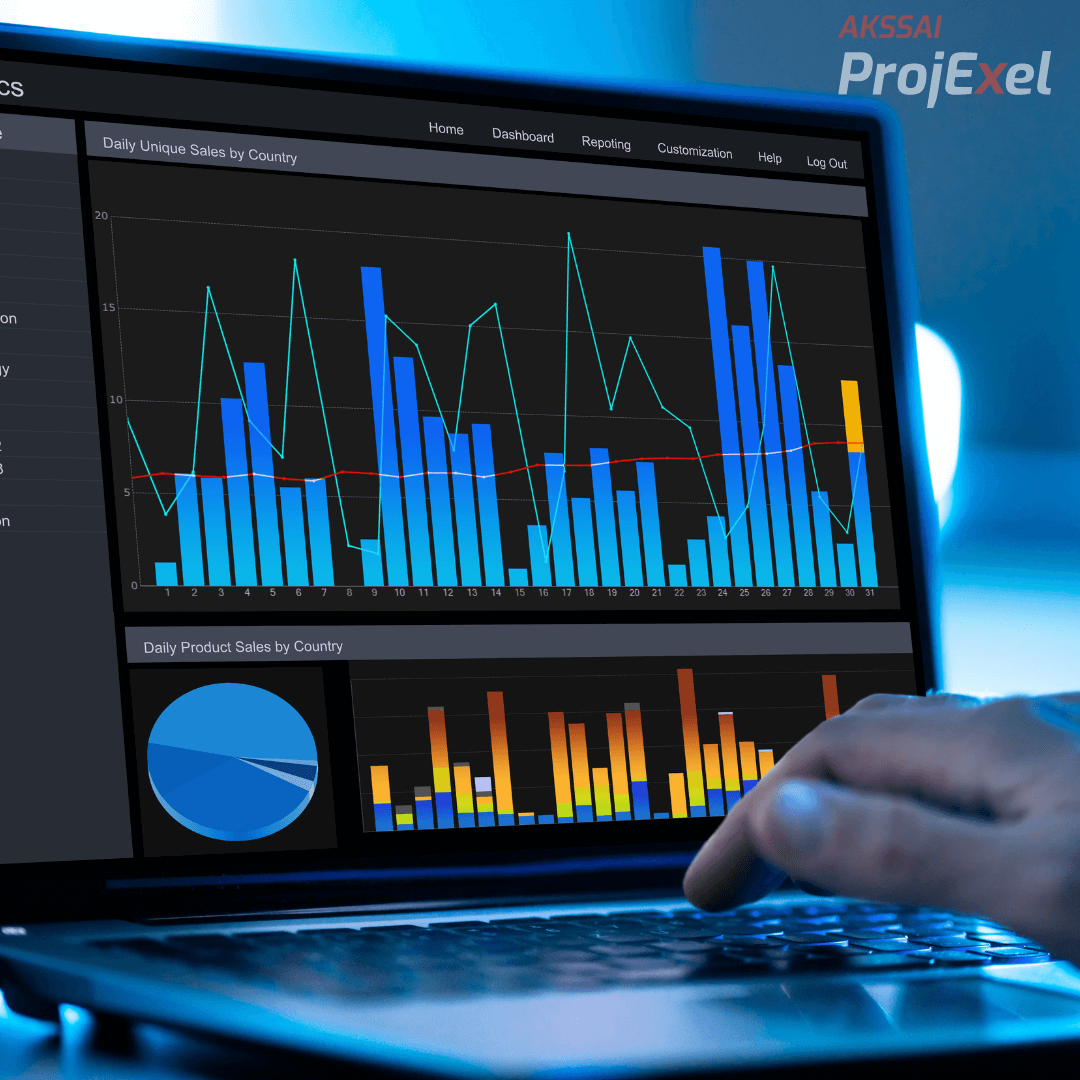
Prediction: Auditors will increasingly rely on advanced data analytics and artificial intelligence for deeper insights into financial data, risk assessment, and predictive modeling.
Impact: Automation will streamline audit processes, allowing auditors to focus on complex analysis and strategic decision-making.
2. Enhanced Cybersecurity Auditing:
Prediction: Cybersecurity audits will evolve to address increasingly sophisticated cyber threats.
Impact: Auditors will play a crucial role in ensuring the robustness of organizations’ cybersecurity measures, protecting sensitive financial data from breaches.
3. Integrated Auditing Platforms:
Prediction: Integrated auditing software will continue to evolve, providing comprehensive tools for collaboration, workflow management, and documentation.
Impact: Increased efficiency, organization, and standardization of audit processes across different sectors.
4. Globalization and Remote Auditing:
Prediction: Remote auditing practices will become more sophisticated, enabling auditors to seamlessly collaborate across borders.
Impact: Enhanced flexibility and accessibility, allowing audit teams to work together efficiently irrespective of geographic locations.
5. Ethics and Responsible AI Use:
Prediction: Ethical considerations in AI use will be at the forefront, with auditors ensuring fairness, transparency, and accountability.
Impact: Auditors will be trusted stewards of data, maintaining the highest ethical standards in their use of advanced technologies.
CONCLUSION
The future of auditing in the digital age is marked by a dynamic interplay between technological innovation, regulatory evolution, and the need for ethical, transparent practices.
In AKSSAI, we embrace these changes, continually upskill, and adopt new technologies to remain effective in an environment where data is abundant, risks are complex, and stakeholders demand real-time insights.
As the profession evolves, our auditors will play a pivotal role in ensuring the integrity and reliability of financial information, contributing to the overall trust and confidence in the global business ecosystem.

